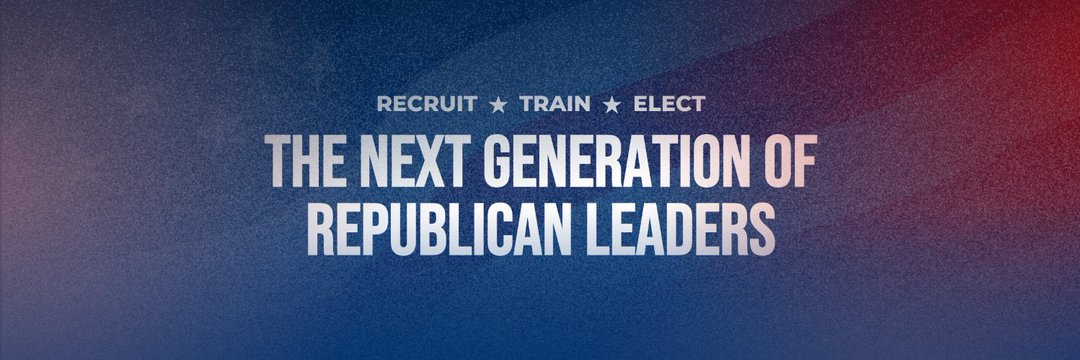Young Republican scandal: What the leaked racist group chat means for the GOP and its young leaders

Young Republican scandal sparks mass GOP outrage. Image Credit: YRNF/X
The Republican Party is facing widespread backlash following the leak of over 28,000 offensive messages exchanged among Young Republican leaders on Telegram. The messages, which spanned seven months, included racist, antisemitic, and sexist remarks, as well as praise for Adolf Hitler and violent rhetoric.
The Young Republican National Federation (YRNF) quickly issued a statement calling the comments “vile and inexcusable,” demanding that all members involved resign immediately. “Such behavior stands in direct opposition to the values our movement represents,” the group wrote on X.
Several political leaders, including Rep. Elise Stefanik, Sen. Chuck Schumer, and Vermont Gov. Phil Scott, joined in condemning the behavior, labeling the comments “revolting,” “bigoted,” and “deeply disturbing.”
Multiple Resignations Follow as Scandal Deepens
The fallout was swift. Peter Giunta, former chair of the New York State Young Republicans, was fired from his role as chief of staff to Assembly member Mike Reilly after reports revealed his involvement. Joseph Maligno, who served as general counsel for the same group, also lost his position within the New York State Unified Court System.
In Kansas, the state’s Young Republican chapter was disbanded entirely following revelations that two of its members made racist and homophobic remarks. Meanwhile, Vermont State Senator Sam Douglass faces mounting calls to resign after he was identified among participants in the chats.
Giunta later issued a public apology, admitting the language was “insensitive and inexcusable,” though he questioned whether some logs had been “doctored” or “taken out of context.”
READ ALSO
Who is Valentina Gomez? Republican candidate sparks outrage burning the Qur’an
Michigan church shooting: Was Thomas Jacob Sanford a Democrat or Republican?
Bipartisan Condemnation Hits Across Washington and State Lines
The scandal has triggered a rare bipartisan outcry. Senate Majority Leader Chuck Schumer described the group’s conduct as “disgusting,” urging Republican leaders to denounce it “swiftly and unequivocally.”
House Minority Leader Hakeem Jeffries and Rep. Yvette Clarke, chair of the Congressional Black Caucus, also blasted the participants, saying the leaked messages expose the persistence of white supremacy within far-right circles.
Even within the GOP, Gov. Phil Scott and Rep. Mike Lawler called for the expulsion of those involved, emphasizing that such behavior “betrays basic human respect and decency.”
Vice President Vance Defends GOP Youths Amid Political Clash
Vice President JD Vance took a different approach, criticizing Democrats for what he labeled hypocrisy in handling political scandals. He referenced Democratic Attorney General candidate Jay Jones, who previously apologized for violent text messages, claiming Jones’ actions were “far worse than anything said in a college group chat.”
This response sparked further debate, with some Republicans supporting Vance’s call for perspective, while others said his defense undercut the party’s moral accountability.
GOP Faces Crisis of Image and Leadership
The controversy comes at a sensitive time for the Republican Party as it prepares for the 2026 midterm elections. The revelations have sparked internal discussions about party discipline, image rehabilitation, and the future of youth engagement within GOP ranks.
Political analysts say the scandal could damage Republican outreach efforts among minority voters and younger demographics, two groups crucial to the party’s long-term strategy. “This incident undermines years of work the GOP has done to rebrand itself as inclusive,” said political analyst Jenna Powell.
As of now, the Young Republican National Federation continues its internal review, with leaders promising to enforce “zero tolerance for hate.”
FAQ on the Republican Party Scandal
1. What is the Young Republican group chat scandal about?
The scandal centers on a leaked Telegram chat involving Young Republican leaders who exchanged racist, antisemitic, and violent messages. Over 28,000 messages revealed offensive language and extremist views, leading to national outrage.
2. Who were the key figures involved in the GOP group chat?
Notable participants include Peter Giunta, Joseph Maligno, and Vermont State Senator Sam Douglass. Their involvement led to job losses, public condemnation, and calls for resignation.
3. How did the Republican Party respond to the scandal?
The Young Republican National Federation demanded all involved members resign immediately. Several state GOP branches, including Kansas and Vermont, issued statements condemning the language as “disgraceful and unacceptable.”
4. What actions have been taken against those involved?
Several members were fired or forced to step down from leadership positions. The Kansas Young Republicans was dissolved, and Vermont’s governor called for Sen. Sam Douglass’s resignation.
5. What did Vice President JD Vance say about the controversy?
JD Vance criticized Democrats for double standards, pointing to Democratic candidate Jay Jones’s past violent texts. He said the GOP chat was inappropriate but “not worse than political threats from Democrats.”
6. How have Democrats reacted to the revelations?
Top Democrats, including Chuck Schumer and Hakeem Jeffries, condemned the chats as proof of deep-rooted racism within parts of the GOP. They called for accountability and cultural change inside the party.
7. Will the scandal affect upcoming elections?
Political analysts believe the controversy could harm the GOP’s reputation among young and minority voters ahead of the 2026 midterms, especially in competitive states like New York and Kansas.
8. What does this mean for the future of the Republican Party?
The incident highlights ongoing tensions within the GOP between traditional conservatives and far-right factions. Party leaders are now under pressure to restore credibility and reaffirm their commitment to inclusion and ethics.

